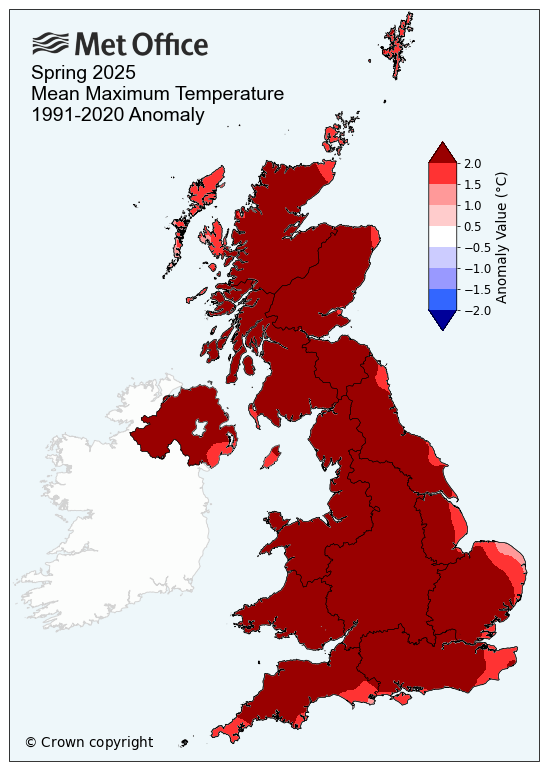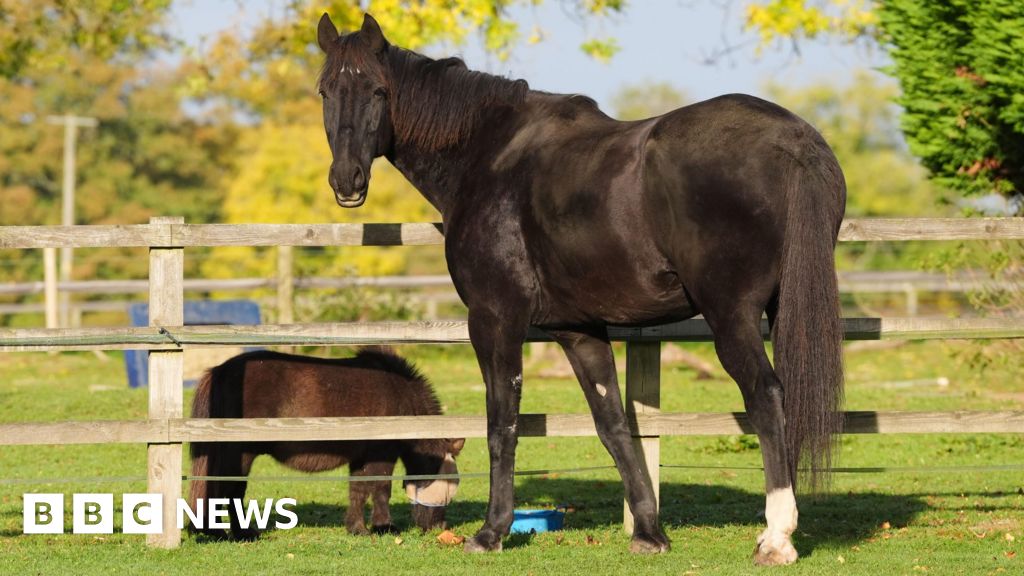 Image source, Getty Images
Image source, Getty Images
Sarah Keith-Lucas
Lead Weather Presenter
Expertise
Meteorology
Climate of the United Kingdom
2025 is already shaping up to be an extraordinary year for weather records in parts of the UK.
Spring 2025 was the UK's warmest and sunniest on record. Hot on its heels, June became the warmest month on record for England. And now, we're already experiencing the third heatwave of the year—and it's not even mid-July.
According to the Intergovernmental Panel on Climate Change (IPCC) - the UN body responsible for assessing climate change - it is now "unequivocal that human influence has warmed the atmosphere, ocean and land", external .
As temperatures continue to rise, the likelihood of extreme weather events, including heatwaves, has increased dramatically.
So, what's going on this year? Are we witnessing the sharp edge of climate change impacts, or is this just another hot spell?
Temperatures in 2025 so far
 Image source, Met Office
Image source, Met Office
The red shows that for 2025 spring temperatures were above average
This map shows the temperature difference compared to the average (also known as the anomaly) for spring 2025 across the UK. Temperatures were 1.4C above the long-term average.
The first half of summer has followed hot on the heels of spring, with UK temperatures since the start of June also reaching record highs in some areas.
The highest temperature of the year so far was recorded on 1 July, when 35.8C was measured in Faversham, Kent.
While this is still well below the UK's hottest ever day - recorded in July 2022, when temperatures exceeded 40C for the first time - the trend of increasingly frequent extreme heat days is clear
Why is it so hot?
Global temperatures have risen by over 1.3 Celsius since the industrial revolution as humans continue to release carbon dioxide and other greenhouse gases into the atmosphere at an unprecedented rate..
This might not sound like much - would we even notice the difference of just over 1C in temperature on any given day?
However, climate scientist Professor Ed Hawkins from Reading University warns that "1C of global warming does NOT mean that heatwaves 'just' get hotter by 1C. Over large parts of the UK, global warming means that heatwaves are 3-4C warmer".
It takes an enormous amount of heat energy to raise the Earth's average temperature by this much. Oceans absorb more than 90% of the excess heat energy trapped in the climate system by greenhouse gases.
The ocean's ability to store and slowly release heat plays a crucial role in stabilising Earth's climate. However their ability to regulate the world's climate may be changing as marine heatwaves are increasing in many of the world's oceans.
Role of El Niño and La Niña?
Previous periods of extreme heat globally, such as in 2023/24, have often been partly attributed to an El Niño event. El Niño typically raises global temperatures by around 0.1C, as warmer waters in the Pacific release additional heat into the atmosphere.
The world cycles between El Niño and La Niña (cooler) phases every two to seven years, with 'neutral' periods in between—such as the one we are currently experiencing.
Historically, many of the hottest years on record have occurred during El Niño episodes. However, climate scientists at NOAA (the National Oceanic and Atmospheric Administration) now say that the warming or cooling effects of El Niño and La Niña are "no match, external" for global warming.
They note that "the global average temperature during recent La Niña years is warmer than during El Niño years in earlier decades."
What about the historic heatwave of June 1976?
 Image source, Getty Images
Image source, Getty Images
Keeping cool in London in the heatwave of 1976
When heatwaves hit the UK, many people compare them to the extraordinary summer of 1976.
That year still holds the record for the longest-lasting heatwave in the UK—16 consecutive days—and the highest June temperature ever recorded: 35.6C in Southampton.
However, June 2025 has been hotter when considering average temperatures.
Furthermore, analysis of historical weather data shows that the summer of 1976 was an isolated event within an otherwise much cooler decade. It also affected a smaller geographic area compared to today's heatwaves.
As our climate continues to warm, what was once a rare meteorological event is becoming a more regular feature of our summers.
Will it stay hot all summer?
Whilst the current heatwave is expected to persist into the start of next week, there are signs of slightly cooler and more unsettled conditions on Monday and Tuesday, particularly in the north
However, warmer and drier weather is likely to return later in the week as high pressure builds back in.
Temperatures are forecast to remain above average for much of the rest of the month, especially in the south-east.
By the end of July and into at least the start of August, there are indications of a cooling trend, although this may be short-lived.
Longer range weather forecasts looking at the next three months suggest temperatures should be at least average through the rest of summer and into early autumn, and well above average in southern England.
There is a less clear signal for rainfall, but it is most likely to be drier than normal in the south-east and wetter in the far north. September is most likely to see a return to wetter conditions.
Climate projections from the Met Office indicate that "hot spells will become more frequent in our future climate, particularly over the southeast of the UK. Temperatures are projected to rise in all seasons, but the heat would be most intense in summer."

 3 months ago
67
3 months ago
67

















































